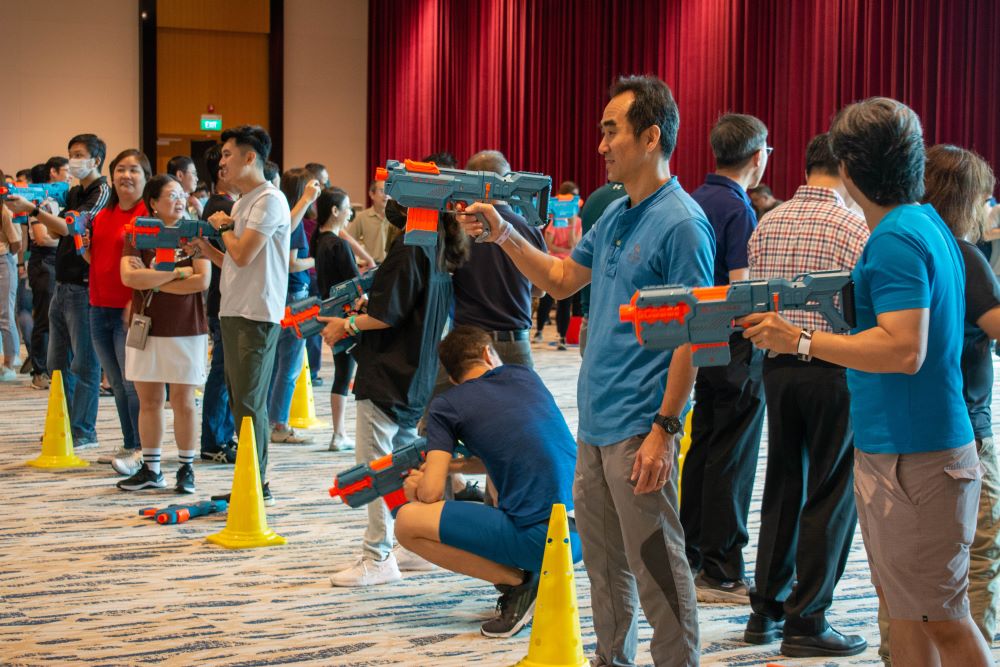Developing Leadership Skills Within Your Organization
In today’s dynamic business environment, effective leadership is crucial for driving organizational success and fostering a positive workplace culture. Developing leadership skills within your organization not only ensures a strong leadership pipeline but also enhances employee engagement and performance. This article explores the importance of leadership development and provides strategies for cultivating leadership skills among employees at all levels.
The Importance of Leadership Development
- Sustaining Growth and Innovation: Strong leadership is essential for sustaining growth and fostering innovation. Leaders guide teams, make strategic decisions, and inspire innovation, ensuring the organization remains competitive.
- Enhancing Employee Engagement: Effective leaders engage employees by providing clear direction, support, and motivation. Engaged employees are more productive, committed, and likely to stay with the organization long-term.
- Building a Resilient Organization: Developing leadership skills across the organization builds resilience. Leaders at all levels can respond effectively to challenges, drive change, and maintain stability during times of uncertainty.
- Creating a Positive Workplace Culture: Leaders shape the organizational culture by modeling values, behaviors, and attitudes. Developing leadership skills helps create a positive, inclusive, and high-performing workplace culture.
Strategies for Developing Leadership Skills
- Identify Potential Leaders: Recognize employees with leadership potential through performance evaluations, peer feedback, and self-assessments. Look for individuals who demonstrate initiative, problem-solving abilities, and strong interpersonal skills.
- Offer Training Programs: Implement comprehensive leadership training programs that cover essential skills such as communication, decision-making, conflict resolution, and strategic thinking. Provide both in-person and online training options to accommodate diverse learning preferences.
- Promote Continuous Learning: Encourage a culture of continuous learning by offering ongoing development opportunities. This can include workshops, seminars, webinars, and access to online courses. Providing resources for self-directed learning allows employees to develop at their own pace.
- Provide Mentorship and Coaching: Establish mentorship and coaching programs where experienced leaders can guide and support emerging leaders. Mentors and coaches provide valuable insights, feedback, and encouragement, helping mentees navigate their leadership journey.
- Encourage Cross-Functional Collaboration: Promote cross-functional collaboration to expose employees to different aspects of the organization. Working with diverse teams enhances leadership skills by providing new perspectives and fostering adaptability.
- Assign Stretch Assignments: Provide employees with stretch assignments that challenge them to step outside their comfort zones. These assignments can include leading a project, managing a team, or spearheading an initiative. Stretch assignments build confidence and develop problem-solving and decision-making skills.
- Foster Emotional Intelligence: Emotional intelligence is a critical component of effective leadership. Offer training and development opportunities focused on self-awareness, empathy, and emotional regulation. Leaders with high emotional intelligence can better understand and manage their own emotions and those of others.
- Encourage Feedback and Reflection: Create a feedback-rich environment where employees regularly receive constructive feedback from peers, supervisors, and subordinates. Encourage self-reflection to help employees understand their strengths and areas for improvement.
- Support Work-Life Balance: Effective leaders understand the importance of work-life balance. Promote policies and practices that support employee well-being, such as flexible work arrangements and wellness programs. A healthy work-life balance enhances overall leadership effectiveness.
- Recognize and Reward Leadership Development: Acknowledge and reward employees who demonstrate leadership growth and contributions. Recognition can be in the form of promotions, awards, or public acknowledgment. Celebrating leadership development reinforces its importance and motivates others to pursue similar growth.
The Role of Organizational Culture in Leadership Development
Organizational culture plays a significant role in leadership development. A culture that values and prioritizes leadership growth creates an environment where employees feel empowered to develop and apply their leadership skills. To cultivate such a culture:
- Lead by Example: Senior leaders should model leadership behaviors and actively participate in development initiatives. Their commitment sets the tone for the rest of the organization.
- Communicate the Vision: Clearly communicate the organization’s vision for leadership development and its importance. Ensure that all employees understand how leadership development aligns with organizational goals.
- Create a Safe Space for Growth: Encourage a growth mindset by fostering an environment where employees feel safe to take risks, make mistakes, and learn from them. This approach promotes continuous improvement and innovation.
- Promote Inclusivity: Ensure that leadership development opportunities are accessible to all employees, regardless of their background, role, or level. Inclusive leadership development fosters diversity and brings a wide range of perspectives to the organization.
Conclusion
Developing leadership skills within your organization is essential for driving success, fostering innovation, and creating a positive workplace culture. By implementing strategies such as identifying potential leaders, offering training programs, providing mentorship and coaching, and promoting continuous learning, organizations can cultivate effective leaders at all levels. An organizational culture that values leadership development further enhances these efforts, creating an environment where employees are empowered to grow and thrive. Investing in leadership development is not just about building a strong leadership pipeline; it’s about ensuring the long-term success and resilience of the organization.
To head back to read another article in our blog, click here.



